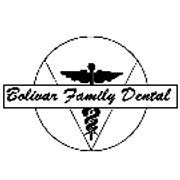
For many people, saliva is something they never notice until it isn’t there. This important fluid is vital to keeping the tongue, teeth, and gums free from bacteria and to reducing the risk of conditions ranging from bad breath to gum disease. For that reason, you should look out for signs of dry mouth to avoid potentially long-lasting dental health problems that require the help of a dentist. Here's what you should know about this condition and how to respond to it.
What Are the Causes of Dry Mouth?
Reactions to certain medications are among the most common reasons why salivary glands may not produce enough saliva. For example, sedatives, antihistamines, painkillers, and other medicines often impact the sympathetic nervous system, causing saliva to thicken or dry up completely. Smoking or chewing tobacco or abusing alcohol and certain recreational drugs can have a similar effect. Other causes of dry mouth include conditions like diabetes and HIV/AIDS, aging, nerve damage, and chemotherapy.
What Are the Symptoms?

Apart from dryness or a sticky feeling in the mouth due to low levels of saliva, you may notice that you have bad breath and trouble chewing, swallowing, and speaking. Any saliva you do produce may have a thick, ropey texture and may not adequately cover your teeth, tongue, and gums.
You might also have a sore throat, hoarseness, dry tongue, and changes to your sense of taste. If you wear lipstick, you may notice it sticking to your teeth, and if you wear dentures, you may have difficulty getting them to fit in place. Left untreated, dry mouth can eventually lead to tooth decay and gum disease since bacteria will remain on the teeth for longer and cause more damage.
How Can You Treat Dry Mouth?
If your dry mouth is determined to be the result of medication, consult your doctor about changing the dosage to alleviate dryness. It may also be possible to switch to another medication with less harmful side effects.
However, if you have a persistent or chronic condition which causes dry mouth, a dentist can offer ways to manage dryness and increase saliva production instead. For example, they may recommend using a mouthwash specially formulated to spur saliva production or prescribe medications with a similar effect. Alternatively, you may benefit from fluoride trays, small dental appliances filled with fluoride worn overnight.
Whichever course of treatment for dry mouth you decide is right for you, it’s important that you brush twice and floss once daily, drink plenty of water, and visit the dentists at Bolivar Family Dental. This Polk County, MO, dental clinic is staffed by experienced, caring specialists capable of providing expert advice and prompt treatment for a wide range of common dental conditions. Call them at (417) 777-8654 to schedule an appointment, or visit them online for further details on their services.
About the Business
Have a question? Ask the experts!
Send your question

